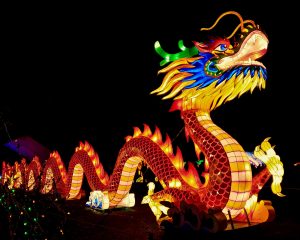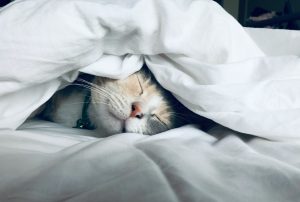Traditional Chinese Medicine
Happy Lunar New Year!
 Happy Lunar New Year of the Yang Wood Dragon! Although I enjoy the psychological aspects of astrology very much, the forecasts and recommendations always land rather vague or obvious for me. I take them with the same grain of salt I do seven-day meteorological forecasts. For example, when Gemini is advised for the month to stop, rejuvenate, and take care of ourselves, I assign it about as much weight as I do when the News recommends I bring an umbrella next Tuesday.
Happy Lunar New Year of the Yang Wood Dragon! Although I enjoy the psychological aspects of astrology very much, the forecasts and recommendations always land rather vague or obvious for me. I take them with the same grain of salt I do seven-day meteorological forecasts. For example, when Gemini is advised for the month to stop, rejuvenate, and take care of ourselves, I assign it about as much weight as I do when the News recommends I bring an umbrella next Tuesday.
The dragon is the most revered animal sign in Chinese astrology, so much so that many Chinese families aim to procreate during these years. As an aside, I imagine this might lay groundwork for a child that feels intense pressure to succeed, between the apparently already competitive nature of their parents compounded by the overcrowded classrooms and job markets they likely find themselves in. Nevertheless, the dragon is considered powerful and brilliant, fortunate, and successful.
The wood element is a strong one as well, typically motivated, proactive, angry, and determined. It corresponds with the liver and gallbladder channels, the former of which is yin and responsible for storing our blood and nutrients and sending them to the central nervous system. The latter of which runs up the entire sides of our bodies and acts as “the pivot” between our yin (organ level) systems and yang (immunological and neurological) systems. Neither of these channels, to my understanding, have any direct connection to their biomedical organs of the same name.
Wood is a creative element, which means a year of the wood dragon is a good one to succeed in creative projects by way hard work. But honestly, what year isn’t?
I will share with you from https://www.thechinesezodiac.org/year-of-the-dragon/ that some of the most promising sectors for business this year are in solar energy, cybersecurity, and AI. In my opinion, this does bear systemic logic. We can think of the liver as acting as cybersecurity for our healthy body fluids, and the gallbladder as parallel to the pivot created by solar energy between the sun and our devices. Pretty cool.
Supposedly lucky numbers for this year are 8, 14, and 21, and the auspicious color is emerald green. So, if you have to choose a date for something like a job interview, a performance, or an IVF transfer, maybe you’ll choose the 8th, 14th, or 21st, and wear an emerald green piece of clothing or accessory for it. Although, an emerald green suit on a job interview is likely inadvisable, unless it’s an audition for Broadway or to act as a Disney park character.
Tips for Resting & Digesting (food)
 It’s nice to eat nice foods—expensive and high quality foods—organic foods, locally grown, homemade, etc. But it isn’t just about what we eat, but how we eat, that will maximize the conversion of our food into nutrients, which will convert into globally good health.
It’s nice to eat nice foods—expensive and high quality foods—organic foods, locally grown, homemade, etc. But it isn’t just about what we eat, but how we eat, that will maximize the conversion of our food into nutrients, which will convert into globally good health.
Whether you use your hands or utensils is up to you and your social circle, but across the board everyone advises chewing our food until it is liquefied in our mouths. This is for the same rationale that Eastern medicines recommend warm and cooked foods—they are easier to digest. Whenever I bribe my toddler with dark chocolate, cheese, or bread, she’s suddenly lightning fast at shoveling two handfuls of vegetables into her mouth in anticipation of her treat; my wife and I have to remind her, almost like a cheerleading chant: “Chew, chew, chew!” “Mastica!”
Each organ channel has its many correspondences, to particular seasons, colors, of the five elements, as well as shapes. The spleen and stomach are ruled by circles (and the color yellow), which means the ideal way to eat and digest is at a roundtable (of loved ones), I suppose with a yellow tablecloth. Ironically, such interior design would likely make my wife vomit.
The point is, we supposedly metabolize our foods that much better when seated surrounded by the company of loved ones. This might explain why many cultures that are known more for their tight-knit communities than their health-conscious diets, live late into life before experiencing any ailments or disease.
Finally, and most importantly in my opinion, is the parasympathetic nervous system cliche of “rest and digest.” It’s not in our power to have a big family meal 21 times a week. Most of us are super busy, eating on the go, if not at least shoving the last bite of food into our mouths like my daughter, before standing up to pay the check, throwing our coats on, and rushing back to work. Unfortunately, in such cases, one will likely absorb only about half of the nutrients they otherwise would have had they just sat for 10-20 minutes after finishing. Needless to say, over time this can be dangerous.
My understanding is it should take at least 15 minutes to eat our food, plus 15 minutes afterwards to sit and digest. Depending on our energy levels, this can be followed by either a 15-minute walk or a 15-minute cat nap, as they do in Europe (though theirs’ is more like an hour). My wife told me about a study that contrasted the blood sugar levels in two groups against one another after eating identical meals, where the one that took 20 minutes to eat it showed a much lower glucose spike than the one that ate the same food rapidly.
On my busy days, which is every day, I try to make a habit of looking at the clock after my last bite and not allowing myself to get up until at least 15 minutes later. Although the general consensus is it is bad to look at screens while eating, my opinion is it is better to use the phone for a few minutes to bide the digestive time window than it is to get up and physically rush out.
Work-induced stress and anxiety compromises our health enough without allowing it to directly interfere with our organs and metabolism. I encourage everyone to take the 30 minutes three times every day to properly rest and digest!
Breathing Exercises for Insomnia
 Everyone has their achilles’ heel—even the most successful or effective clinicians—and one of mine, as I’ve discussed before, is insomnia. On the bright side, mine is not constitutional—I never struggled with sleep as a child or adolescent. Unfortunately, this means by around 30 years old I had created it myself, whether through stress or unhealthy lifestyle, surely with a dash of genetic predisposition. My family tends to be more manic and wiry than sluggish or lethargic, the former of which lends itself to an overactive “yang,” or sympathetic nervous system.
Everyone has their achilles’ heel—even the most successful or effective clinicians—and one of mine, as I’ve discussed before, is insomnia. On the bright side, mine is not constitutional—I never struggled with sleep as a child or adolescent. Unfortunately, this means by around 30 years old I had created it myself, whether through stress or unhealthy lifestyle, surely with a dash of genetic predisposition. My family tends to be more manic and wiry than sluggish or lethargic, the former of which lends itself to an overactive “yang,” or sympathetic nervous system.
There are many disease patterns that might explain insomnia, but the top 3 are as follows:
- Blood deficiency: These people tend to be interrupted and/or have trouble staying asleep more than they do falling asleep. If they wake up and feel hot this might be the “blood deficient yang ming syndrome,” which requires heat-clearing in addition to blood nourishing.
- Ben Tun Syndrome: These people tend to have more trouble falling asleep, are subject to ruminating thoughts, anxiety, and heart palpitations. If there are no ruminating thoughts, and they’re just inexplicably lying there awake, good news: This might be the aforementioned “Yang Ming heat” stirring, more than sort of any anxiety condition.
- Food stagnation: These often wake in the middle of the night with stomach discomfort, reflux, or phlegm in the sinuses. They tend to benefit greatly from intermittent fasting, where they either skip dinner or eat it very early, around 5 or 6pm. They
In the past Chinese Medicine has intermittently helped with my own sleep issues, although there have been times where neither me nor my own herbalist/teacher have been able to crack the code. Much like a lawyer who represents themselves in court, it is challenging to write your own formula or treat one’s self. With acupuncture, beyond treating the overall pattern, I like to use points on the head, around the prefrontal cortex and pineal gland to modulate the neurological component of the issue.
I’ve used products like melatonin or Doc Parsley also with intermittent success, but obviously one should not be reliant on such supplements in perpetuity, especially since it is impossible to prescribe them holistically, tailored to the patient. They are symptom-managers, admittedly helpful during crises and less aggressive than pharmaceuticals, but still not ideal.
Beyond internal medicine, the best tools to maximize sleep are the obvious sleep hygiene and the breath. Melatonin secretion begins at 9pm and peaks at 10, so this is the best time to get in bed. If you can’t get to bed by 10, the earlier the better. Of course, sleep in a dark, relatively cool room, and spend the last two hours before bed with as little electronic (and digestive) stimulation as possible. If your sleep is interrupted use your breath to try and relax. This works for me about 80% of the time:
The 4-7-8 breath is one I learned from my wife, Dr. Jillian Cohen, and she learned it from Dr. Weill’s fellowship for Integrative Medicine.
Whenever that doesn’t work for me, I move on to this Kundalini yogic breath, defined by its silent mantra, which simply means saying it silently to yourself.
Finally, if that doesn’t work, I bring out the heavy artillery, which is to say God. You don’t have to be religious to believe in a higher power, and I imagine anyone who’s laid awake in bed struggling for several hours is willing to invoke whatever might be available to resolve the crisis. Using another silent mantra and breathing only through the nose I inhale: “I am God,” then exhale: “God is love.” This works almost all of the time, I think calming my central nervous system with the reassurance that no matter how poorly I sleep, no matter how difficult tomorrow is, I am ultimately connected to the source and none of this shit really matters. Hope that helps!
Does Acupuncture Treat Heart Disease?

According to the Centers for Disease Control and Prevention, heart disease is the leading cause of death for men and women in the United States. And ethnicity doesn’t matter, as people of all racial and ethnic groups are impacted. With such serious statistics, many might wonder what treatment options are available. Did you know that acupuncture can help with treating heart disease, as well as many of its contributing factors? Read on to learn how. continue reading
Balancing the Bitter Cold with Chinese Medicine
 Welcome to the “Bitter Cold.” Holidays are over, New Year’s has passed, viral plagues have not, and single digit temperatures have arrived. Although we do not hibernate, nor could we, even if the more introverted of us might prefer to, in theory we should do so at this time. Instead, how can we compensate for the nature of the present climate?
Welcome to the “Bitter Cold.” Holidays are over, New Year’s has passed, viral plagues have not, and single digit temperatures have arrived. Although we do not hibernate, nor could we, even if the more introverted of us might prefer to, in theory we should do so at this time. Instead, how can we compensate for the nature of the present climate?
In Chinese Medicine herbal formulas that contain bitter and cold ingredients, such as coptis root, phellodendron, or gardenia fruit, generally harmonize their harsh properties with more acrid, warm ingredients, such as ginger, dry-fried ginger, tangerine peel, or pinelliae root. This enables the bitter, cold herbs to purge systemically damp/hot inflammation without compromising the integrity of the stomach qi, or microbiome. This is holistic medicine.
Self-care can be “holistic” as well. Ie. If we eat a cold salad or ice cream it should be had with or followed by hot ginger or cinnamon tea (No, it doesn’t help to have ginger or cinnamon flavored ice cream). Conversely, if we eat an especially rich or spicy meal, and/or have alcohol we might accompany it with a few cucumbers or radishes—or follow it with peppermint or barley tea the next day (still hot, as cold beverages can never benefit the gut from our perspective). If we exercise or work out hard on a particular day we should get to bed early that night, in order to properly recover the body fluids used in the workout. If we slept awful the night before we should take it easy. Nap if possible. If we slept and feel wonderful we should exercise and strive for progress. It is said that we should view each day as a lifetime in itself, and try our best to balance it accordingly.
From a climactic perspective, we might counterbalance the bitter cold weather with similar choices. As the low temperatures and more difficult commutes exhaust our cellular energy, which is what engenders our immunological energy, all forms of conservation are advisable: Less exercise, less sex, less work (if possible), and earlier bedtimes as often as possible. All of these, with the exception of less exercise for the “New Year, New Me” crowd, are relatively intuitive in January.
As goes the outdoor environment, it is most advisable to eat like Eastern Europeans for now. Think beef or lamb stews, chicken soups, even sausages and pork chops, all of which paired with roasted or steamed vegetables. Vegetables might be sauteed with ginger, garlic, onions, any warming spices to recover from the bitter cold that surrounds us. Duck is actually considered to have a “cooling” effect on the body, although I am inclined to think that a duck confit roasted with onions and garlic and served with red wine should amply warm the body. While 11pm is the advisable bedtime for summer, 10pm is ideal for winter. Beer and other cold beverages should be minimized, as should raw fruit and all forms of sugar. For my apple-loving daughter, I roast them at 350 or 375 for 10-20 minutes with a sprinkle of cinnamon and a drizzle of maple syrup. For myself I would also add clove powder, but it is too spicy for her.
For my purposes, many of you will notice me doing a lot more moxibustion on the body at this time of year. Whether on the belly, along the spine, or at point, “Stomach 36,” just below the knee, no hands-on modality is more effective at regenerating healthy fluids and moving the blood than “moxa.” My opinion is that acupuncturists who do not use moxa at all are likely doing their patients and the entire medicine a disservice, as at its inception Chinese Medicine was not called “Chinese Medicine,” but “Zhen Jiu,” or “Acupuncture and Moxibustion.” Our classical texts dictate: “Use acupuncture to treat ‘yang patterns,’ moxibustion to treat ‘yin patterns’.” My understanding of this is that acupuncture excels at clearing heat and releasing stagnation, but the mugwort is necessary to dissolve unhealthy fluids and regenerate healthy ones.


